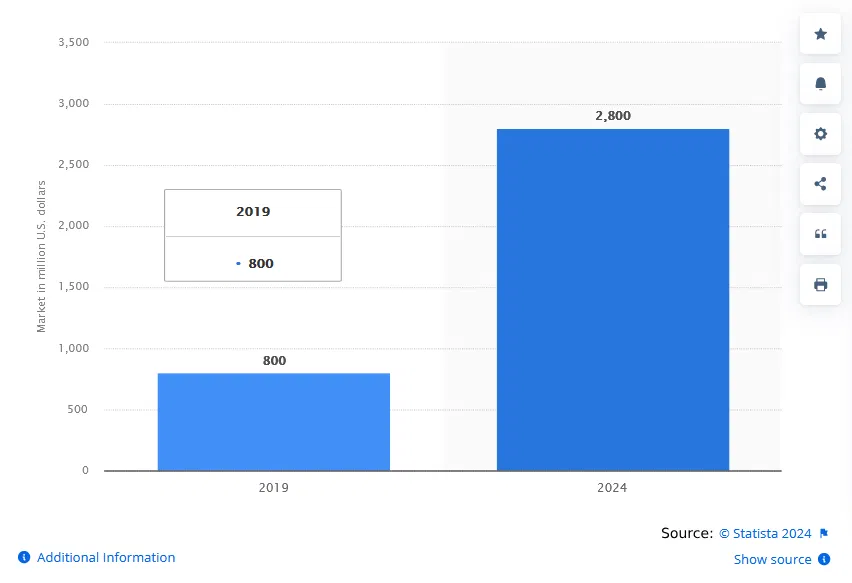The call center industry is at a pivotal crossroads, with technological advancements ever-evolving, particularly artificial intelligence (AI) is set to rejuvenate how businesses pan out. Looking back, it’s surprising and hard to swallow that it’s been just over a year since ChatGPT was made available to the public. This release kicked off a swing, as the wide adoption took over in such a short period of time.
AI-driven shift in call centers
Traditional call centers with pointing-and-clicking and jars of condiment labels will remain standing in the face of progressive technologies. The implementation of AI, especially generative AI integration, has revolutionized customer service in call centers. Businesses are now implementing AI within their voice solutions to:
- Include brief information on how call centers are leveraging technologies to reduce call handling duration and improve the overall efficiency of the agents.
- Transcribe and interpret phone calls to give agents an additional tool in their quest for development and training.
- Point customers to digital channels in order to decrease the number of calls they have to make.
Small businesses can benefit just as much as large organizations from using NLP to improve customer service.
The following graph tells a story with numbers.

“Forecasts suggest that revenues from the call center AI market will grow from around 800 million U.S. dollars in 2019 to around 2.8 billion by 2024.” – Statista
Call center AI moves from selective to standardized
AI plays an interesting role in how call centers operate right now, and there will probably be more things that we are unaware of now!
So far, here are a few key stages of AI’s evolution in call centers:
- From manual to automated call routing: Nowadays, AI-driven systems can capture the calls and use algorithms to identify the most appropriate agent to deal with the particular query. Thus, the time of interruptions and wait time for the customers is drastically reduced by this channel. This enables the customer to connect directly to an agent who can provide the immediate answers they are looking for.
- From human intervention on every customer question to virtual agents: Virtual agents or conversational AI, is the technology behind the NLP and ML algorithms set up through the use of sophisticated algorithms so that they can understand and respond to customer queries instantly. These intelligent chatbots can provide immediate answers without customers having to wait on hold for hours, allowing human agents to concentrate on questions that need their input.
- From manual QA to AI-assisted reviews and speech analytics: Previously, customer service operations required its supervisor to listen to the recordings of agents’ calls from beginning to end for the purpose of performance reviews and QA scoring. Nowadays, speech analytics tools can facilitate this process by analyzing call recordings and transcripts to speed up the manual effort. Besides, AI can also do this in a jiffy for all the calls of an agent, which means that a supervisor does not have to pick the calls at random to review and the chances of an unfair QA review are reduced because the manager has randomly chosen a really bad call to review.
6 ways call centers can use AI to empower agents and supervisors
1. Interactive voice response (IVR)
AI-based software solutions powered by analytics and automatic voice responses help to automate phone calls. An IVR system places out a message across many channels whenever you have a custom message that is needed to be communicated through automation.
Moreover, the conversational IVR system, which is voice-based, also helps in guiding the prospects and customers through different options to make the system seem less automated. A plus with respect to AI-based IVRS is their scalable nature in real time.
2. Conversational AI
Conversational AI furnishes chatbots and other online chat solutions. This is the realm where conversational AI is popularly used for customer service concerns and inquiries. With 85% of the customers preferring to message brands, chatbots have become the most important customer service channel. A customer can already interact with the website through chatbots and use non-live or self-support options without waiting to speak to a live agent.
Chatbots enable customers to resolve issues without intervention from agents and allow agents to concentrate better on important tasks. It also reduces call volume, so that agents do not need to answer simple and repetitive questions.
3. Intelligent virtual assistants (IVAs)
The contemporary AI tools in call centers give a humanistic feel to the listeners, which makes them very real. A good IVA employs the latest speech recognition, NLP and ML to create conversations that closely resemble human speech.
IVA technology aids call centers to do different job functions like the organizing of the workforce efficiency and costs. Call centers can easily connect leads to the right live agent and find out how many staff members are required since the AI can take care of multiple customer interactions at the same time.
4. Answering machine detection (AMD)
People making the outbound calls from call centers are already aware of the problems created with automatic answer devices and voice mail. The exchange of leads and calling assistants as well as the sales team should be made in sync to have a healthy conversation flow, but too many voicemails can deflate the conversation rhythm.
A quality AMD solution can help you to overcome this situation. Real-time services of functional and voice mailboxes can be achieved by the ML-based and highly accurate AMD tools that judge the speaker’s voice either a human or voicemails, which results in high productivity.
5. Artificial emotional intelligence
Emotional intelligence of AI is how frequently an agent breaks into a customer and at the same time, it is also the measure of the tone of the voice of both parties. Next, it provides the agents with the pop up messages that are accompanied by real-time feedback. The purpose is to enable the agents to know how the customer feels throughout the call.
6. Autonomous AI agents
Autonomous AI agents are capable of handling a significant portion of customer interactions. These autonomous agents wouldn’t just answer basic questions – they could personalize responses based on past interactions, suggest relevant solutions, and even navigate simple troubleshooting steps. This translates to shorter wait times, 24/7 support, and the ability to serve customers in multiple languages. Furthermore, the data gathered from these AI interactions can be invaluable, providing insights into customer needs and trends, ultimately leading to better agent training, optimized call center operations, and a more personalized customer service experience.
Time to make the right call with AI
AI is proving to be quintessential in handling routine tasks and delivering instant solutions. With features like generative AI, call summaries and transcriptions, AI-powered chatbots, your business can take your customer experience to another level. Softweb Solutions get this drift and has all the necessary tools and expertise to help you with AI-powered solutions to get the ball rolling. Get in touch with us if you have something in mind.
FAQs
1. Can AI replace call center employees?
The short answer is no. AI is best used as a supplementary tool for agents and supervisors. Undoubtedly, there will always be core issues that can be best addressed by human beings. AI will assist in locating the necessary documentation and other answers for a live agent, but it will not be capable of answering every single “edge case” question.
2. How does AI enhance customer service through call centers?
Another big advantage of AI for AI agents is that it empowers them with the tools to efficiently and accurately react to customer queries. Moreover, it can also help agents offer more personalized experiences; through the prompt analysis of customer data AI can search knowledge bases very rapidly to ensure that each agent is equipped with the right information at the right time. Lastly, making clients feel that their concerns and inquiries are addressed quickly not only satisfies their needs but also makes them happy.
3. The call center is the customer’s first point of contact in a crisis; how can AI help improve engagement amongst the agents during these calls?
The fact that chatbots and conversational AI are so helpful to the agents who are always busy, whether they are new hires or experienced employees is amazing.
Firstly, it relieves agents from having to deflect phone calls and simultaneously empowers them to concentrate on more productive tasks. Additionally, AI-powered solutions also provide real-time coaching on the service calls which helps the agents to respond with right answer in a quick way, stay compliant with the industry regulations (like HIPAA) and improve their productivity.




